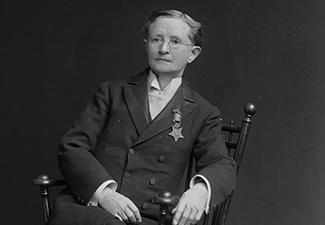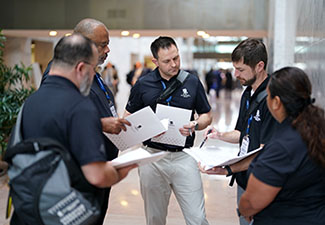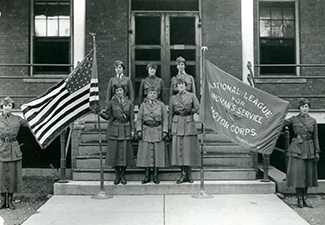Deborah Sampson's Historical Legacy: A Symbol of Courage in America’s History

Deborah Sampson earned a full military pension for her service in the Revolutionary War. But there’s a catch: Women weren’t allowed to serve in the war.
Still, in 1782, as the Revolutionary War fought on, Deborah Sampson disguised herself as a man named Robert Shurtleff to join the Fourth Massachusetts Regiment and serve for the Patriot forces. The name, according to the American Battlefield Trust, was chosen because it was the name of her brother, who had passed away.
She’s well-known for asking, “Why can I not fight for my country, too?”
Setting the stage for women to serve in various ways — including through disguising themselves to serve in the Civil War and other battles and wars — Deborah served as a soldier and a role model for women for decades to come.
Deborah Sampson’s Journey
Before joining the military, Deborah was an indentured servant during childhood. When she turned 18, she became a teacher during summers, despite being self-educated. In the winters, she worked as a weaver.
As Shurtleff, she spent roughly 17 months as a combat soldier, according to Smithsonian Magazine. Reportedly, she did, in fact, see combat and sustained injuries from both musket fire and swordfights. She continuously turned down medical treatment for fear that her true identity would be revealed and instead extracted shrapnel from her leg herself.
However, not long before the end of the war, her identity was discovered. Deborah fell ill in the midst of an epidemic and was taken to the hospital, where she lost consciousness, according to the National Women’s History Museum. In Philadelphia, roughly a year and a half into her service, it was revealed that she was a woman and not Robert Shurtleff.
In 1783, Deborah received an honorable discharge and went home to Massachusetts. Two years later, she married Benjamin Gannet, and they had three children.
She received a military pension for her service from Massachusetts, and by 1802, she became a lecturer, spending the year telling tales of her life and experiences in the military. She was the first woman to do this, too.
Deborah died at just 66 years old, and four years later, her husband petitioned Congress for pay as a military spouse. He received the pay despite the couple not being married at the time of Deborah’s service in the Revolutionary War. Congress concluded that the war had “furnished no other similar example of female heroism, fidelity, and courage.” Her husband died before ever receiving the pay.
Deborah Sampson’s Impact: Empowering Women Veterans Today
Deborah’s legacy lives on, even today. In 2019, the U.S. House of Representatives passed the Deborah Sampson Act, expanding and implementing numerous programs in health care and benefits for female veterans at the Department of Veterans Affairs. The act was unanimously passed at the end of 2020 and gave women broader access to critical care and services.
According to the U.S. Senate Committee on Veterans Affairs, the Deborah Sampson Act aimed to eliminate barriers to care and services in the following ways:
- Establishes an Office of Women's Health at the VA, offers more group counseling retreats for women veterans and their families to help with the transition to civilian life, and expands call center services for women veterans.
- Removes barriers to care by placing a dedicated women’s health provider at every VA health facility, training staff, and updating VA facilities to improve privacy and create a better environment for women veterans.
- Offers legal services for women veterans, increases childcare for veterans using VA health care, and requires the Government Accountability Office to report on the VA’s efforts to help homeless or at-risk women veterans.
- Improves care and benefits for survivors of military sexual trauma (MST) of all genders by offering MST counseling to former Guard and Reserve members, allowing the VA to treat MST-related health issues, and making the claims process easier for MST survivors at the Veterans Benefits Administration.
Other provisions to the act include increasing veterans’ access to timely health care with improved scheduling, streamlining veterans’ access to earned disability benefits online, and establishing an Advisory Committee on Tribal and Indian Affairs to advise the VA secretary.
“The impact of efforts such as the Deborah Sampson Act has shown that women who serve have unique needs, including when engaging with healthcare for themselves. Aspects like childcare support, access to mammography services, and opportunities to engage with specialized women’s health providers are necessary for women veterans,” said Dr. Kirsten Walsh, WWP Government and Community Affairs associate.
“The Deborah Sampson Act became law in 2021, almost 250 years after Deborah Sampson served alongside Americans in the Revolutionary War. We are still seeing and discussing the impacts of this legislation and related efforts, but it is important to note- the work is not done,” Kirsten added.
Learn more about how Wounded Warrior Project serves women veterans.
Contact: Kaitlyn McCue, Public Relations, kmccue@woundedwarriorproject.org, 904.870.1964
About Wounded Warrior Project
Since 2003, Wounded Warrior Project® (WWP) has been meeting the growing needs of warriors, their families, and caregivers — helping them achieve their highest ambition. Learn more about Wounded Warrior Project.



